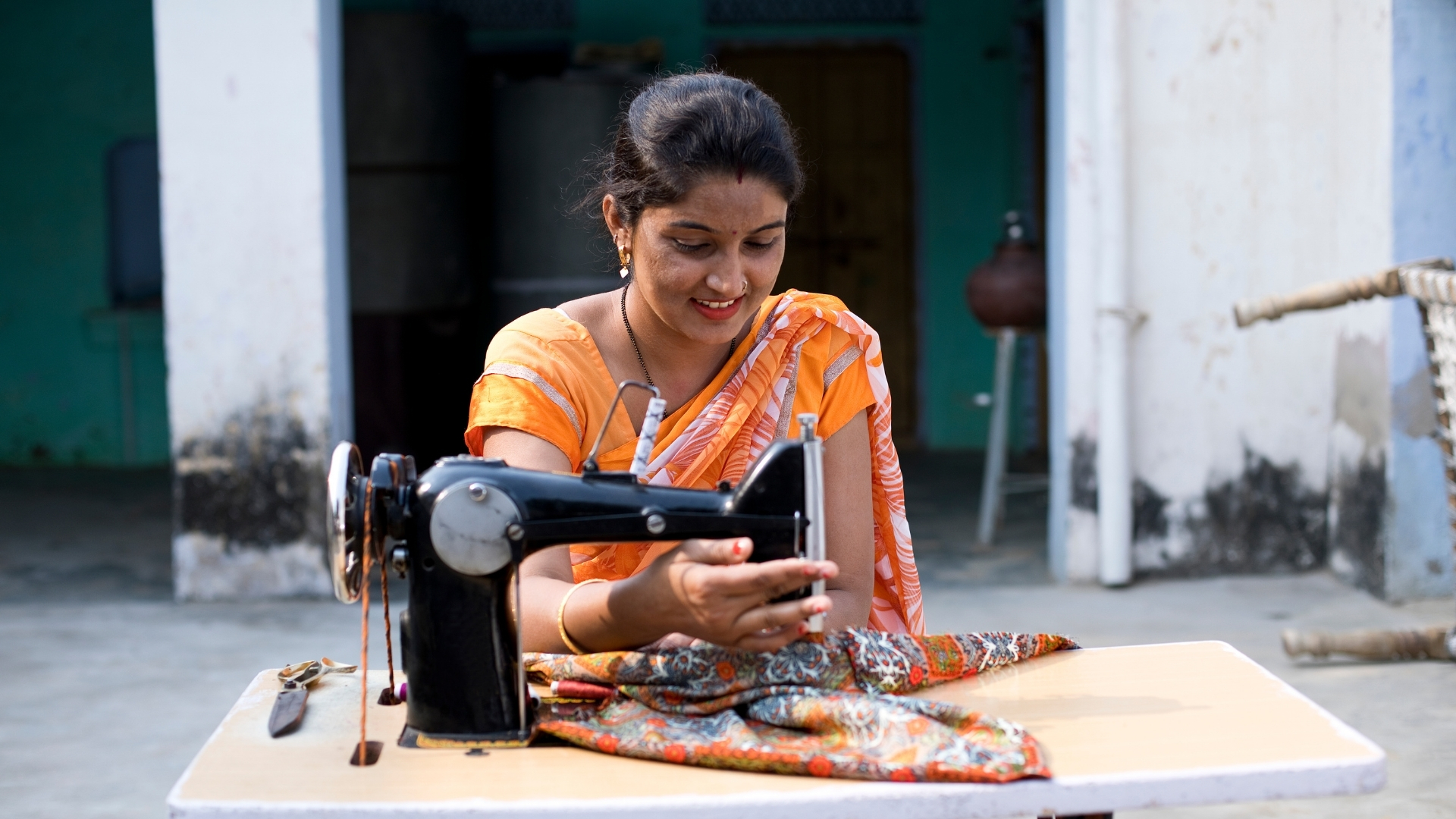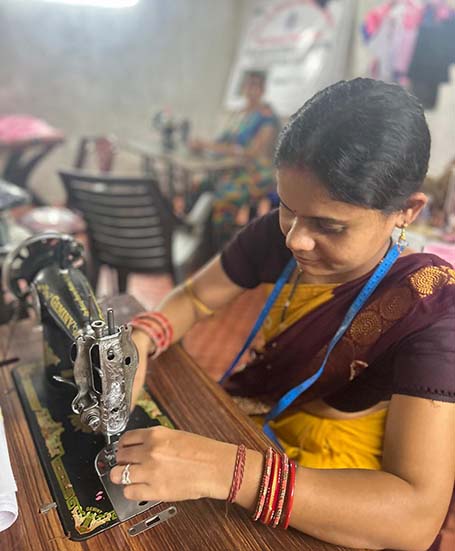Threads of Self-Resilience

How survivors of gender-based violence in Odisha are stitching pathways to dignity and independence
When I visited the Swayamshree Mahila Tailoring Producer Group (PG) in Barkote block, Deogarh, Odisha, it was clear that this small production centre is more than a workplace. It is a story of women building livelihoods, reclaiming dignity, and showing what the women’s economic empowerment sector truly needs.
For women in rural Odisha, especially survivors of gender-based violence (GBV), livelihood opportunities are not just about income, they are about their identity and independence. Survivors often need safe spaces, access to training, credit, and collective structures that support them in taking the first step outside their homes. What Swayamshree demonstrates is the power of combining skill training from Odisha Livelihood Mission (OLM) and Rural Self Employment Training Institutes (RSETI) with financial support and solidarity. With a modest grant of ₹2.04 lakh, these women built the foundation of a thriving business and, more importantly, a support system.
Breaking Barriers through Enterprise
Women entrepreneurs, particularly GBV survivors, face steep barriers. Society often questions a woman who seeks financial independence more so if she steps away from an abusive relationship. Accessing credit is a struggle, markets are highly competitive, and stigma limits her mobility and confidence.
The solution lies in designing support systems that go beyond training, i.e., linking women to markets, easing access to loans, and ensuring that survivors are not treated as dependents but as entrepreneurs. Swayamshree’s journey from a handful of sewing machines to orders worth ₹11 lakh in just one year shows that small steps can unlock resilience and enterprise.
The path to women’s empowerment does not lie in the livelihood sector alone. Survivors require convergence of support from multiple sectors, i.e.. livelihoods, social protection, financial inclusion, and judicial systems. Current policy efforts often operate in silos, where access to training does not guarantee access to credit and economic gains do not always ensure safety or dignity at home. Stronger collaboration may sound cliché, but it is the only way forward: departments can align better with banks and microfinance institutions to make credit accessible, open new markets, and gender justice programs can address stigma and ensure safety. Only when these pieces connect can survivor women move from surviving to thriving.
From Survivors to Entrepreneurs
The women of Swayamshree have shown what such integration can achieve. Thirty-six members, including ten GBV survivors, now run a registered producer group. They divide responsibilities such as, accounts, marketing, procurement, and quality control, proving that discipline and teamwork matter as much as skill. They have secured school uniform orders against over 65 competitors, taken bulk orders for flags and garments, and reinvested profits back into collective savings to strengthen their capital base. These women are determined to learn ‘pattern cutting’ to reduce dependency on a male worker, and Sarala (name changed), who rebuilt her confidence after years of abuse, embodies the sector’s most powerful lesson: empowerment is not charity, it is enterprise.
 Swayamshree |
The story of Swayamshree is not just a local success, it is a model. It shows that when women are supported with skills, finance, and solidarity, and when sectors work together, they can overcome social stigma, build profitable businesses, and inspire others to follow. |
The author is Shipra Singh, Senior Manager – Program Analytics, PCI India
